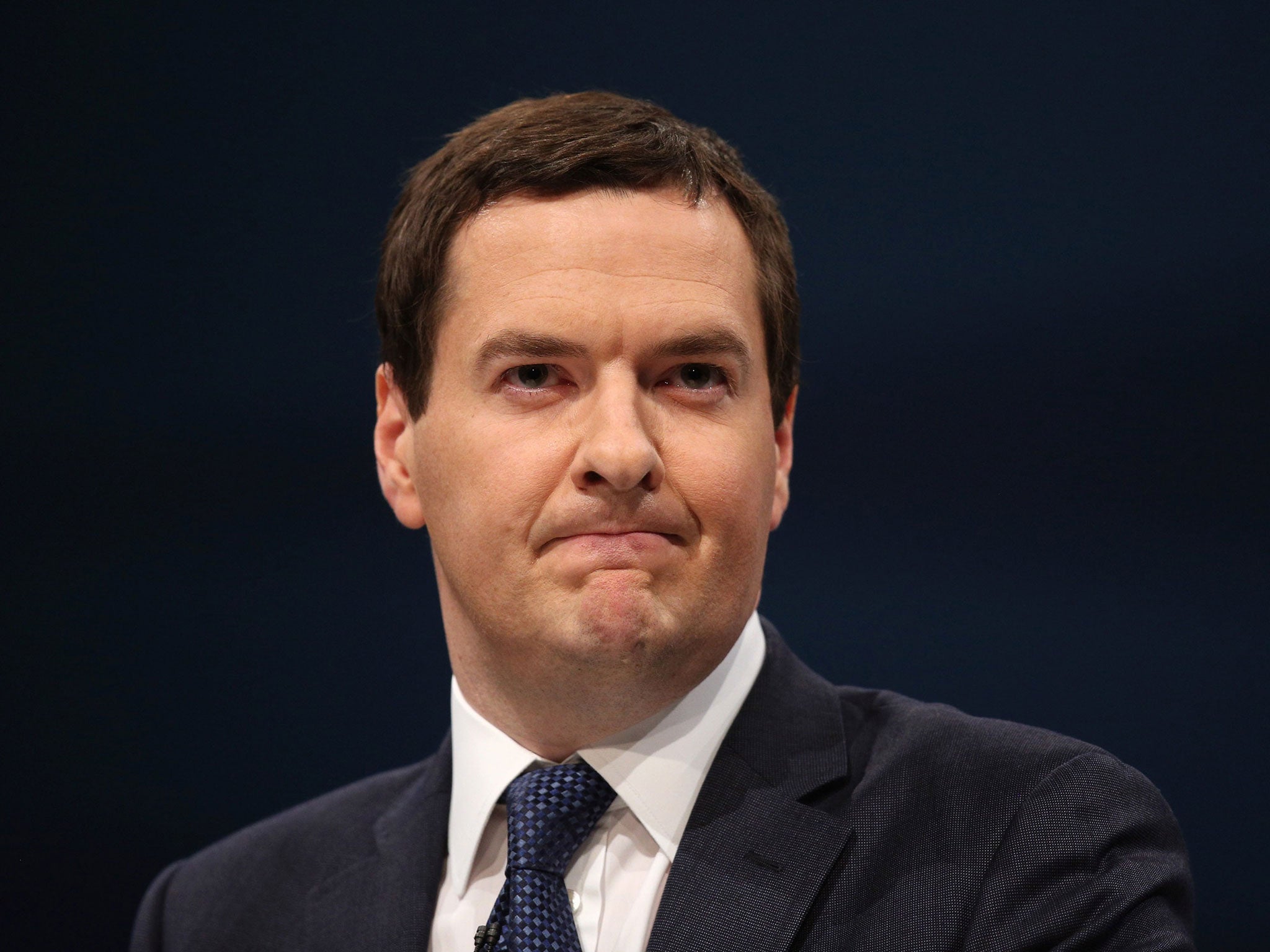George Osborne's Autumn Statement explained: What's in it and what will it mean?
Chancellor's last chance to convince the country that his economic plan is working

Your support helps us to tell the story
From reproductive rights to climate change to Big Tech, The Independent is on the ground when the story is developing. Whether it's investigating the financials of Elon Musk's pro-Trump PAC or producing our latest documentary, 'The A Word', which shines a light on the American women fighting for reproductive rights, we know how important it is to parse out the facts from the messaging.
At such a critical moment in US history, we need reporters on the ground. Your donation allows us to keep sending journalists to speak to both sides of the story.
The Independent is trusted by Americans across the entire political spectrum. And unlike many other quality news outlets, we choose not to lock Americans out of our reporting and analysis with paywalls. We believe quality journalism should be available to everyone, paid for by those who can afford it.
Your support makes all the difference.George Osborne will have a tricky balancing act to perform on Wednesday when he presents his final autumn statement before next May’s general election.
When is it?
Mr Osborne will begin his speech at 12.30pm on Wednesday.
What does he want us to hear?
The Chancellor is trying to highlight good news on economic growth and jobs as he attempts to show that his much-trumpeted “long-term economic plan” is working.
What does he want us to ignore?
The official forecasts from the Office for Budgetary Responsibility (OBR) will also include bad news on borrowing, calling into question the success of the Coalition’s central mission when it was formed in 2010. Borrowing this year could be as high as £95bn, about £9bn more than forecast in the Budget in March.
Why are we so much in debt?
A major reason is that the Government’s tax revenues are much lower than expected. This is because many of the new jobs that have been created are low-paid or part-time. The Coalition’s decision to raise the personal tax allowance has also depressed Treasury revenues.
So is George in trouble?
Yes, but he will try and spin his way out of it and try to make a political virtue out of the gloomy borrowing statistics. As one senior Conservative put it: “He doesn’t want to say ‘job done’ on the deficit because some voters might think it would be safe to allow Labour back in. We have to say that only we can finish the job on the deficit, and that Labour can’t be trusted.”
What is he likely to announce then?
- £2bn boost for the NHS
- £15bn programme of road improvements
- Maintain the freeze in petrol duty despite the fall in oil prices
- Cut taxes for widows and widowers who inherit their partners’ annuity pensions
- Abolish air passenger duty for children under 12
- Crack down on companies like Google who are accused of transferring profits to different countries to keep their tax bills down
- Build new homes and sell off more than £1bn of Government-owned land for development
- A new law pledging to eliminate the budget deficit by the 2017-18 financial year
How will Ed Miliband respond?
The Labour leader claimed today that the Coalition’s economic strategy had failed, saying that millions of families were experiencing a “joyless, pay-less recovery”, adding: “This Government has done a great job of squeezing the middle, but a bad job of squeezing the deficit.”
The fall in tax revenues plays into Labour’s campaign on the “cost of living crisis”, because many workers have seen their wages rise by less than inflation.
How about the Lib Dems?
This week’s other political battle is between the Tories and their Liberal Democrat coalition partners. The Lib Dems are claiming the credit for the NHS cash boost and the road building projects.
Today Nick Clegg argued that the Coalition was right to delay its plans to balance the books by next May and suggested the Lib Dems had blocked more draconian cuts.
He told BBC Radio 4’s Today programme: "I think it is right that this Government hasn't been dogmatic about our deficit reduction plan. We have been firm, but when it became obvious that the structural deficit was not going to be eliminated by the end of this parliament, far from doing what some people urged me to do - which was to chase our tail, cut even more, implement even more stringent cuts - we said no, we are going to stick to the plan, but we will accept that it will take a little longer and it will be three years into the next parliament before you wipe the slate clean and balance the books for future generations.”
Join our commenting forum
Join thought-provoking conversations, follow other Independent readers and see their replies
Comments